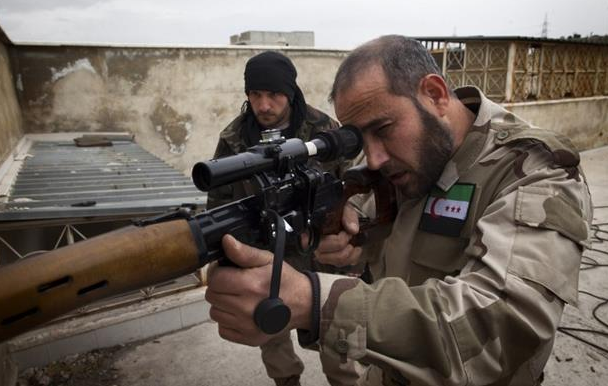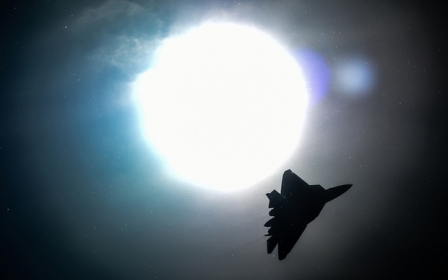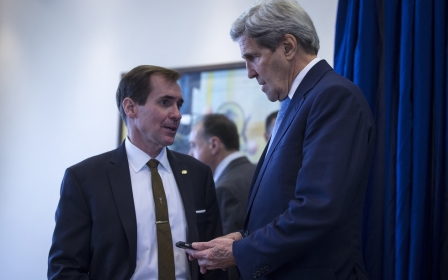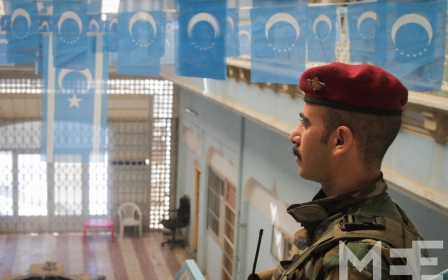Turkey-backed Syrian rebels seize 2 border villages from IS: Report

Syrian rebels backed by Turkey and the US have seized two villages from the Islamic State (IS) group close to the Turkish border after fierce fighting, Turkish official media said on Saturday.
The state-run Anatolia news agency said ethnic Turkmen fighters had captured the villages of Harjaleh and Dalha in northern Aleppo province from IS forces.
The ground offensive by the Turkmen fighters, strong allies of Turkey in its push to oust President Bashar al-Assad, was backed from the air by US and Turkish fighter jets, the agency reported.
Six Turkish F-16s, four US F-15s, an American AC-130 and three drones were involved, the report said, without specifying if any targets were hit. Some 70 IS militants were killed in the fighting, it added.
The Britain-based Syrian Observatory for Human Rights confirmed that the villages had been captured from IS but said the campaign had been waged by rebel and Islamist factions and not just Turkmen fighters.
The US has led an aerial anti-IS coalition in Iraq and Syria since last year but has struggled to find solid partners on the ground.
Despite this, on Friday US Deputy Secretary of State Antony Blinken said the coalition efforts were bearing fruit.
"In both Iraq and Syria, we are starting to squeeze Daesh, from the east, from the north, from the south, as we undermine the foundations of its self-declared caliphate," he said, using another acronym for IS.
"In the last 14 months, the US has brought together 65 countries, launched more 8,200 airstrikes, and deprived [Daesh of] 40 percent of the territory [it] once controlled in Iraq," he added.
Blinken also pointed out the efforts put into the Turkish-Syria border and other key locations.
"Over the last weekend, Kurdish forces secured a strategic victory by liberating Sinjar, cutting off Highway 47, the principal east-west line of communication, weapons transport, and illicit oil and fuel flows between Mosul and Raqqa," he said.
"In northern Syria, the coalition has secured 85 percent of the Turkish-Syrian border. We are enhancing our campaign and air strikes with Turkey to help drive Daesh out of the remaining 15 percent, 70 miles (112 kilometres) that it still controls, thereby closing off its most vital supply line for foreign terrorist fighters."
Turkish officials have in the past few days said a major joint air operation against IS with the US was planned, with Turkmen forces fighting on the ground.
They said the aim was to clear out IS from a 98km stretch of Syria's northern border with Turkey which is still controlled by IS.
The special US envoy for the anti-IS coalition, Brett McGurk, had indicated on Friday that the operation was imminent.
"Now we're going to start pushing them [IS] back," he said in Washington.
Turkish media reports described the operation as the first step in Ankara's plan for creating a "safe zone" in northern Syria that could eventually house some of the 2.2 million Syrian refugees hosted by Turkey.
However, Syrian Kurdish forces, which at present control large swaths of northern Syria and have been a key groundforce against IS, have serious reservations about the measure and fear it will take aim at them rather than IS.
There have been growing tensions between Turkmen in Syria and Iraq and Kurdish forces fighting in the two countries, with reports indicating that Turkey would be keen to see Turkmen counteract growing Kurdish power.
American officials have also expressed scepticism, with President Barack Obama saying at the G20 summit in Turkey on 16 November that a true safe zone needed ground operations.
"How would it work? Would it become a magnet for further terrorist attacks? And how many personnel would be required, and how would it end? There's a whole set of questions that have to be answered there," he said.
New MEE newsletter: Jerusalem Dispatch
Sign up to get the latest insights and analysis on Israel-Palestine, alongside Turkey Unpacked and other MEE newsletters
Middle East Eye delivers independent and unrivalled coverage and analysis of the Middle East, North Africa and beyond. To learn more about republishing this content and the associated fees, please fill out this form. More about MEE can be found here.




